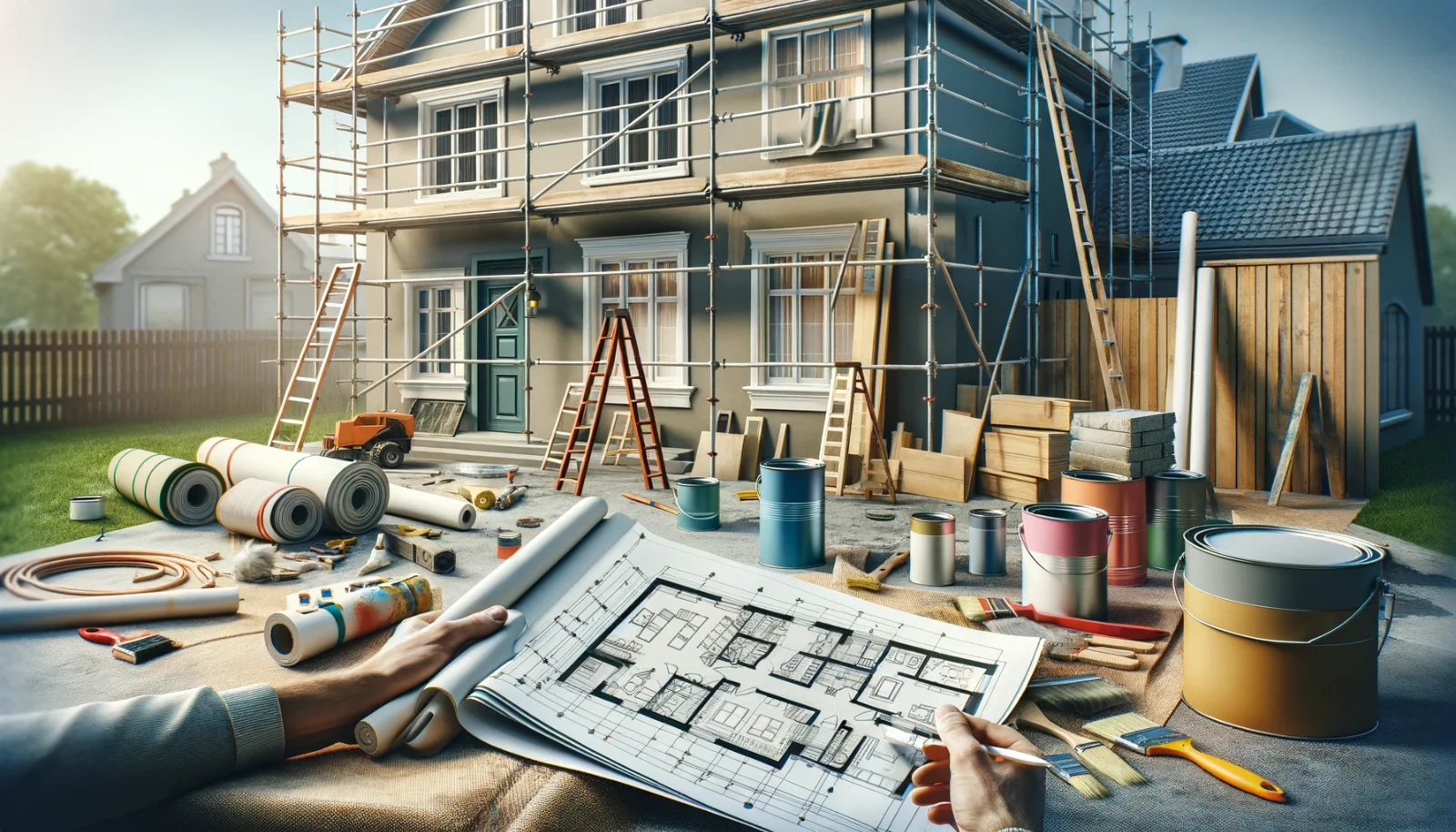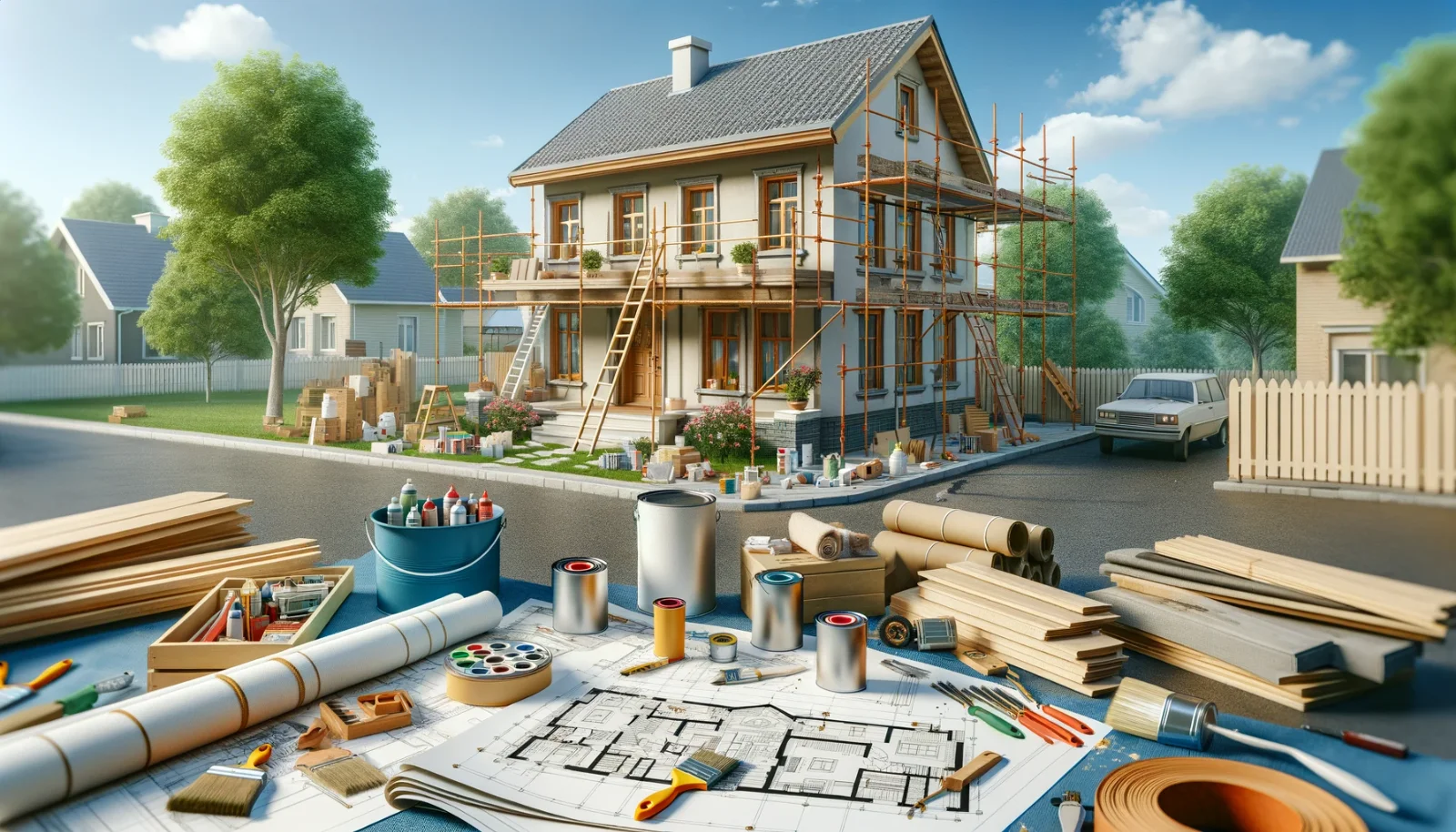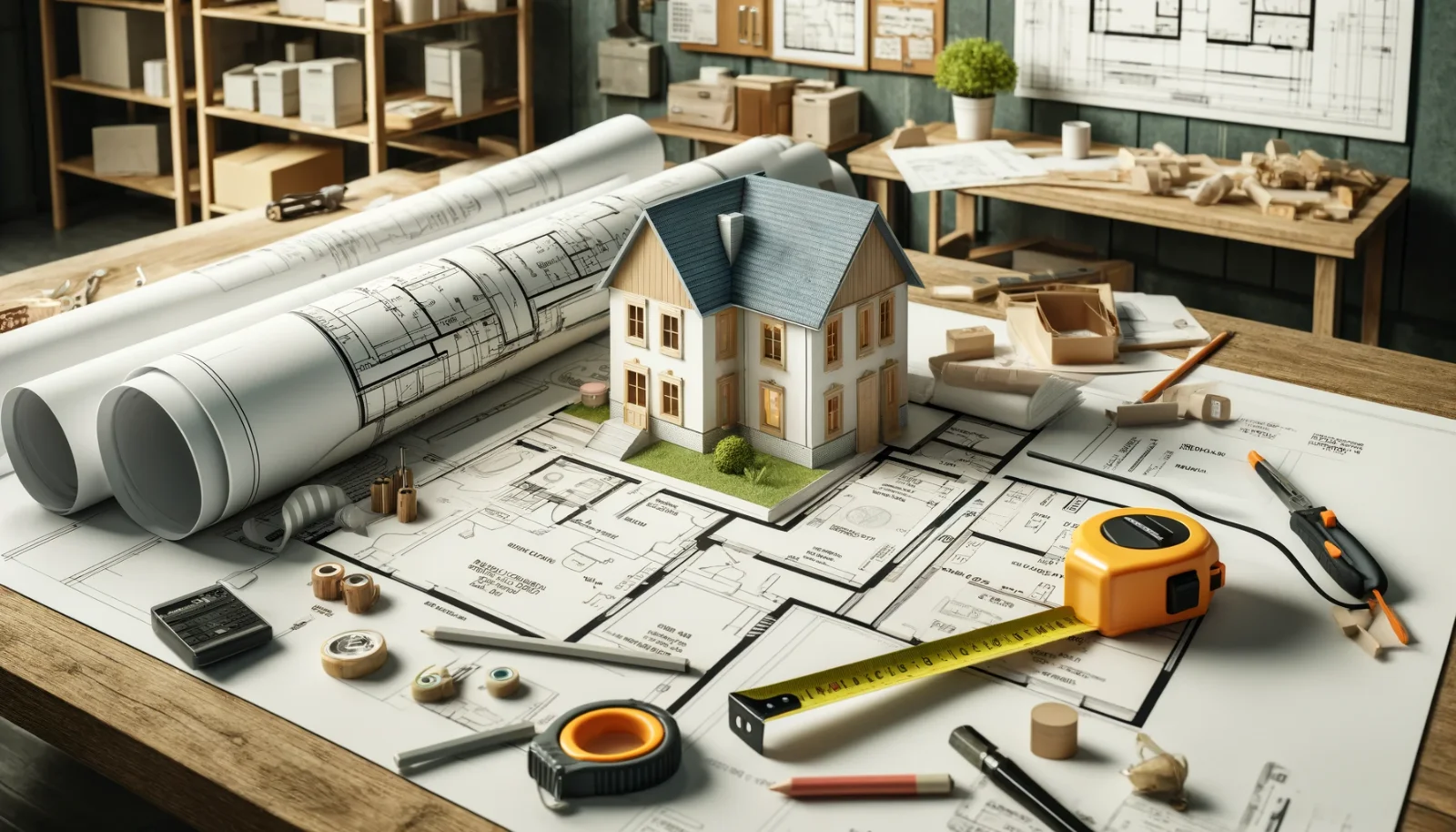The FHA 203(k) Rehabilitation Loan program, often simply referred to as the FHA 203(k) loan, is a government-backed mortgage program designed to facilitate the purchase and renovation of homes in need of repair. This loan program, offered by the Federal Housing Administration (FHA), is an excellent option for homebuyers looking to buy a fixer-upper and make it their dream home or for homeowners wanting to improve their existing property.

The Federal Housing Administration (FHA) 203K loan is a type of government-insured mortgage that enables homebuyers and homeowners to finance both the purchase or refinancing of a house and the cost of renovating it into a single mortgage. This program is particularly beneficial for buyers who want to avoid the hassle of obtaining separate loans for home purchase and renovation. This program is designed to promote homeownership and neighborhood revitalization by making it easier for borrowers to obtain financing for properties that require repairs or modernization. The loan is insured by the FHA, which provides lenders with the assurance they need to extend credit to borrowers who might not qualify for conventional loans.
There are two main types of FHA 203(k) loans: the Standard 203K and the Limited 203(k) (formerly known as the Streamline 203(k)).
The Standard 203(k) loan is ideal for extensive renovation projects including structural repairs, room additions, and other major renovations. This type of loan is suitable for homes in serious disrepair or properties that need significant upgrades.
The Limited 203(k) loan is designed for smaller projects and minor repairs. It is more streamlined and easier to process than the Standard 203(k) loan, making it ideal for minor renovations that do not require structural changes.
To qualify for an FHA 203(k) loan, borrowers must meet certain eligibility criteria, which include:
Credit Score: Borrowers usually need a minimum credit score of 580. However, a lower credit score may be accepted if there are strong compensating factors and a larger down payment.
Income and Employment: Borrowers must demonstrate stable income and employment history. Lenders will evaluate income, employment history, and debt-to-income (DTI) ratio to ensure borrowers can repay the loan.
Down Payment: Borrowers must make a down payment of at least 3.5% of the total loan amount (purchase price plus renovation costs).
Loan Limits: The loan amount, including both the purchase price (or current loan balance for refinances) and renovation costs, must not exceed the FHA loan limits set by HUD. These limits vary by county and are higher in counties with higher housing costs. You can view the loan limits for each state we lend in by clicking the states below:
| California FHA Loan Limits | New Jersey FHA Loan Limits |
| Connecticut FHA Loan Limits | New York FHA Loan Limits |
| Florida FHA Loan Limits | Pennsylvania FHA Loan Limits |
| Georgia FHA Loan Limits | Texas FHA Loan Limits |
Renovation Plans: Borrowers must provide detailed renovation plans and cost estimates from licensed contractors. The proposed renovations must be completed within 6 months of loan closing.
Eligible Property Types: A FHA 203(k) can be used for various types of properties, including: single family homes, multi-family homes up to 4 units, condominiums, townhouses and certain mixed use properties.

The FHA 203(k) loan offers numerous benefits to borrowers, including:
Single Loan for Purchase and Renovation: Combines the cost of buying a home with the cost of repairs and improvements, simplifying the financing process.
Low Down Payment: Requires a down payment of just 3.5%, making it accessible to more buyers.
Flexible Credit Requirements: More lenient credit score requirements compared to conventional loans. Competitive Interest Rates: FHA 203K loans often have interest rates comparable to those of traditional FHA loans, which are typically lower than conventional mortgage rates.
Government Backing: The FHA insures the loan, providing lenders with the assurance needed to extend credit to borrowers with less-than-perfect credit.
Increase Property Value: Renovations can significantly increase the value of the home, potentially leading to greater equity and a higher resale value.
While the FHA 203(k) loan offers many benefits, there are also some challenges and considerations to keep in mind:
Complex Process: The FHA 203(k) loan process can be more complex and time-consuming than other mortgage options due to the additional steps involved in securing bids, hiring consultants, and managing renovations.
Higher Costs: The costs associated with hiring consultants, contractors, and additional inspections can add to the overall expense of the loan.
Strict Guidelines: Borrowers must adhere to FHA guidelines and ensure that all renovations are completed within the specified timeframe, which is typically 6 months.
Obtaining an FHA 203(k) loan involves several steps, from finding the right property to completing the renovation project. Here is a step-by-step guide to help you navigate the process:
Pre-Approval: Start by getting pre-approved for a mortgage by completing our online Loan Application. After completing the application, you will receive instructions on how to upload your documents. For a list of documents that you will need to upload, see our Pre-approval Document Checklist.
Find a Suitable Property: Once you have been pre-approved for a loan, start searching for a property that meets the FHA 203(k) eligibility criteria. Work with a real estate agent familiar with the program to find homes that need repair and can be financed through an FHA 203(k) loan.
Hire a 203(k) Consultant: For Standard 203(k) loans, you will need to hire a HUD-approved 203(k) consultant. The consultant will assess the property, provide a detailed work write-up, and oversee the renovation process. The consultant's report will include a cost estimate for the repairs, which is required for the loan application.
Obtain Contractor Bids: Get bids from licensed contractors for the required repairs and improvements. Ensure the bids are detailed and cover all aspects of the renovation project. Your lender will review these bids as part of the loan approval process.
Submit Your Loan Application: Submit a complete loan application to your lender, including the property purchase contract, contractor bids, and any other required documentation. Your lender will review your application, order an appraisal, and determine the loan amount based on the purchase price plus renovation costs.
Appraisal and Underwriting: The lender will order an appraisal to determine the current value of the property and the expected value after renovations. The loan will then go through underwriting, where the lender reviews all documentation to ensure it meets FHA guidelines.
Close the Loan: Once your loan is approved, you will proceed to closing. At closing, the lender will disburse funds to cover the purchase price of the home and place the renovation funds in an escrow account. These funds will be released in stages as the renovation work is completed.
Complete the Renovations: After closing, the renovation work can begin. For Standard 203(k) loans, the 203(k) consultant will oversee the project, ensuring that the work is completed according to the approved plans. For Limited 203(k) loans, the borrower is responsible for managing the contractors and ensuring the work is completed on time and within budget.
Final Inspection and Disbursement: Once the renovations are completed, a final inspection will be conducted to ensure the work meets FHA standards. Upon approval, the remaining funds in the escrow account will be disbursed to the contractors, and the loan process will be complete.

The FHA 203(k) loan can be used for a wide range of repairs and improvements, including but not limited to:
For borrowers who may not qualify for an FHA 203K loan or who have different needs, there are several alternative financing options:
Similar to the 203K loan, but with slightly different eligibility requirements and renovation guidelines. There are 2 types of conventional renovation options, the Fannie Mae Homestyle Renovation and the Freddie Mac ChoiceRenovation. These loans generally require a higher minimum credit score and a larger downpayment than the FHA 203(k) loan. The funds can be used for a variety of projects, including structural repairs, updating kitchens or bathrooms, adding new rooms, and other home improvements.
A HELOC allows homeowners to borrow against the equity in their home to finance renovations. HELOCs typically offer lower interest rates compared to personal loans and provide flexibility in borrowing, as funds can be drawn as needed. However, a HELOC is a separate loan from the primary mortgage, which means borrowers will have two loans to manage and repay. HELOCs often have variable interest rates, which can fluctuate over time and lead to higher borrowing costs if rates rise. Also, borrowers must have sufficient equity in their home to qualify for a HELOC, which may not be possible for those with limited equity or those purchasing a new home.
FHA 203(k) loan rates are generally higher than standard FHA loans due to the additional risk lenders take on by funding both the purchase and renovation of a property. However, they are still competitive compared to conventional renovation loans. Contact us for rates on our FHA 203(k) loan programs.
The FHA 203(k) Rehabilitation Loan program is a valuable tool for homebuyers and homeowners looking to purchase and renovate properties in need of repair. By combining the cost of the home purchase with the cost of repairs into a single mortgage, the FHA 203(k) loan simplifies the financing process and makes it easier to turn a fixer-upper into a dream home. While the process can be complex, the benefits of low down payments, flexible credit requirements, and the potential for increased property value make the FHA 203(k) loan an attractive option for many borrowers.
As with any financial decision, it is essential for borrowers to carefully consider their options, consult with a 203K lender and ensure that they fully understand the requirements and responsibilities of the program before committing to an FHA 203K loan.
Alpine Mortgage offers FHA 203(k) loans in the following locations: California, Connecticut, Florida, Georgia, New Jersey, New York, Pennsylvania & Texas. Contact us today at (800) 876-5626 to learn more about our FHA 203(k) loan programs or click here to have one of our FHA 203(k) loan specialists contact you.
If you would like to apply for a FHA 203(k) loan, you can apply online now.
No, luxury items such as swimming pools, outdoor kitchens, and other non-essential improvements are not eligible under the FHA 203K loan program.
Yes, borrowers must hire licensed contractors to complete the renovations. For Standard 203K loans, the 203K consultant will oversee the renovation process.
No, all renovations must be completed by licensed contractors. Borrowers cannot complete the work themselves, even if they have the necessary skills and experience.
Most renovation loans include a contingency reserve that can be used in the event that the renovation goes over budget.
No, FHA 203(k) loans are only available for properties that will be the borrower’s primary residence. Investment properties and vacation homes are not eligible. However, you can get a 203(k) loan on multi-unit properties where you can rent out the extra units as long as one of th units is your primary residence.
Yes, the FHA 203(k) loan can be used to refinance an existing mortgage and include the cost of renovations. This is beneficial for homeowners looking to improve their current property.
Renovations must typically be completed within six months from the closing date. Extensions may be granted in certain circumstances, but timely completion is generally required.
No, if you are looking to do build a house from ground up, see our Construction Loans.